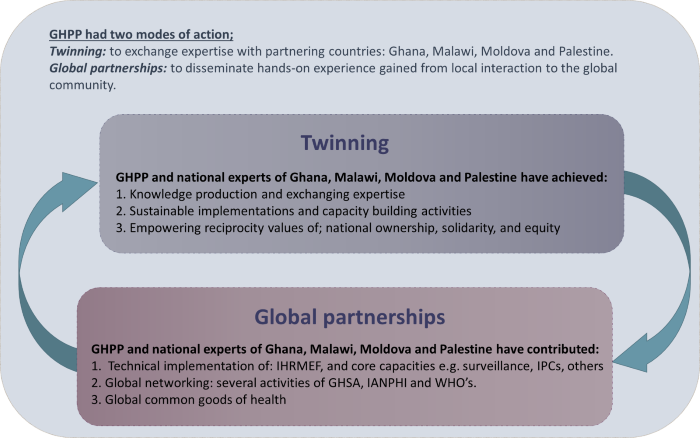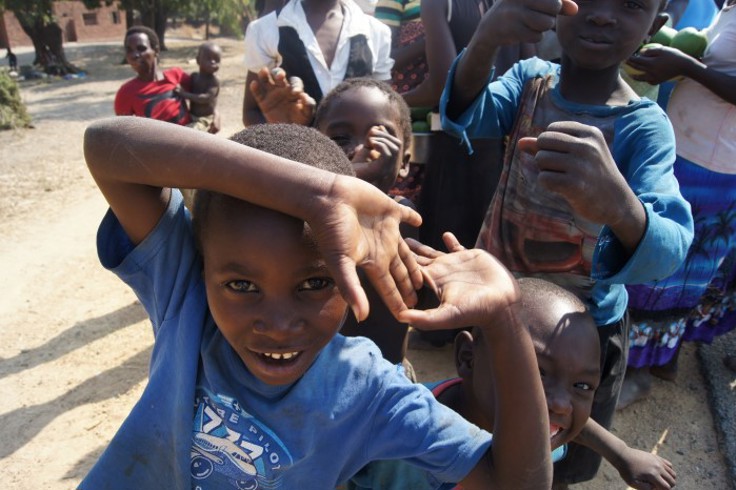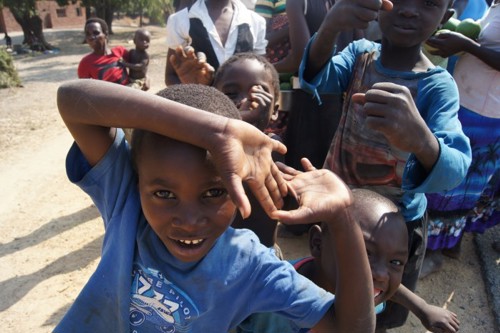The Global Health Preparedness Programme
Article
|Updated
The Global Health Preparedness Programme (GHPP) represents and exemplifies our vision of the global adoption and implementation of the International Health Regulations (2005) (IHR). It had twinning partnerships with four countries; Ghana, Malawi, Moldova, and Palestine, and with the WHO. Together with our partners GHPP achieved many milestones of strengthening health security in the collaborating countries and globally.
The GHPP was established in 2015 through an agreement between the Norwegian Institute of Public Health (NIPH) and the Norwegian Ministry of Foreign Affairs (MFA) and continued with the Norwegian Agency for Development Cooperation (Norad) from 2016 until 2021. The GHPP was designed to contribute to global efforts of strengthening the implementation of the IHR (2005) in partner countries. Article 44 of the IHR calls on countries to collaborate with each other in fulfilling the IHR requirements, both with technical and financial support.
In line with the IHR, the GHPP had three objectives:
- To support implementation of IHR core capacities in select partner countries.
- To contribute to global efforts that enhance capacity and procedures to assist all countries in meeting their obligations under IHR.
- To strengthen institutional capacity of National Public Health Institutes (NPHIs), in partner countries, and globally.
The organisational framework of the GHPP was peer-to-peer collaboration between Norway and selected Low- and Middle-Income Countries (LMIC); Ghana, Malawi, Moldova, and Palestine, in addition to various partnerships with global institutions.
- The experience that the NIPH has gained with the GHPP is not only beneficial for Norway and its institutions (including NIPH, Norad, the Norwegian Ministry of Health and the Norwegian Ministry of Foreign Affairs), but also for other countries and institutions that are considering providing similar support. In this regard, investing at the global level ensures keeping the seat at the table where global health security is being discussed. Supporting countries through a twinning model provides the opportunity to facilitate cross-fertilization with the global level discussions. - NORAD, review report of the GHPP by HERA
Achieved results
The feature of the GHPP was to establish engaging partnerships between the NIPH and the national counterparts of Ghana, Malawi, Moldova, and Palestine, and with global institutions. It allowed for a better understanding of country specific dynamics; challenges, opportunities; and thereafter to deliver sustainable outcomes. The implementations varied from developing and conducting IHR assessment tools, development of various surveillance systems, and investing in technical and human resources.
The GHPP has been a large and comprehensive project involving many different stakeholders in partner countries and several global organisations. This section illustrates the mode of action of the GHPP and its main strategic imperatives. GHPP had two modes of actions: Establishing partnerships and tailoring implementations:

Establishing partnerships
A key feature of the GHPP was to develop an elaborated twinning collaboration model. The main component is long-term peer-to-peer twinning between NIPH and governmental NPHIs, or other similar national bodies responsible for IHR core capacities.
- National: Ministries of health and public health institutions of Ghana, Palestine, Moldova, Malawi.
- Regional: The European Centre for Disease Prevention and Control (ECDC), and Africa Centres for Disease Control and Prevention (Africa CDC)
- Global: World Health Organization (WHO), both at Headquarters, Regional office and at country level; the Global Health Security Agenda (GHSA) and the International Association of National Public Health Institutes (IANPHI).
Tailoring implementation
After establishing partnerships, we conducted joint assessments or reviews of the individual country’s status of implementation of the IHR core capacities, and then agree on a National Action Plan for Health Security (NAPHS) to address the identified gaps. With the country authorities, we agreed on a set of prioritised tasks to fill the gaps. For the global component of GHPP, we have used a similar methodology of identifying major tasks and areas of work in close collaboration with the relevant actors. This procedure proved to be very helpful as a steering document for all five sub-projects. At the same time, we allowed for flexibility when conditions for the priorities changed, especially with the emergence of the COVID-19 pandemic.
The programme had five strategic outputs of Knowledge development, Infrastructure development, Exchange of expertise, Implementation, and Global collaboration.
Knowledge development
NIPH participated in developing and expanding on the IHR core capacities beyond the State Party Annual Reporting (SPAR), and in the development of various International Health Regulations Monitoring and Evaluation Frameworks (IHRMEF) such as: Joint External Evaluations (JEE), Simulation Exercises (SimEx), After Action Reviews (AAR), and NAPHS. NAPHS and risk communication plans were consequently developed for most of our partner countries, in addition to chemical preparedness plan for Ghana.
Infrastructure development
Both national and international collaboration, including with IANPHI and WHO, was instrumental to articulate public health related activities under one national umbrella in GHPP’s partner countries, for instance: the development of Palestinian National Institute of Public Health (PNIPH) and Public Health Institute of Malawi (PHIM) which were ongoing.
Exchange of expertise
Real life experience, hands-on webinars, and interactive workshops were dynamic components of the GHPP to foster implementation of various IHRMEF of JEE, SimEx, and NAPHS with our partner institutions. Many of the technical projects were conducted in mutual collaboration with national experts.
Implementation
In the project we focused to identify countries’ gaps and bottlenecks, and tailoring activities to advance implementation of IHR technical capacities. These activities included developing multisectoral communication channels, supporting the further deployment of national surveillance programmes and emergency plans regarding specific IHR capacities like chemical events, AMR, biosafety and biosecurity hazards, and high-priority pathogens.
Global collaboration
NIPH through the GHPP presented a dynamic model of peer-to-peer collaboration between the Global North and South. Additionally, we coordinated with other global players such as Public Health England (PHE), the Robert Koch Institute (RKI) of Germany, the Nordic Public Health Institutes, US CDC, Africa CDC and ECDC to join forces in advancing global adoption of the IHR, for example in the implementation of event-based surveillance in Ghana, Malawi, Palestine, and Moldova. In addition, there was close engagement with WHO’s regional offices in developing national competencies in surveillance, IPC, and One Health.
How did COVID-19 impact the project?
The COVID-19 pandemic has clearly shown that global collaboration is vital to mitigate emerging public health threats. The GHPP was impacted by the pandemic with the need to re-prioritise outputs and yielded outcomes.
GHPP had an overarching goal of strengthening the implementation of the IHR in partner countries by delivering specific outputs. Some of these pre-pandemic outputs had to be reoriented or reshuffled to enhance national responses of our partnering countries during the emergency.
The IHR provide a prerequisite legal framework defining countries’ rights and obligations in handling public health emergencies with a potential to cross borders and to cause distress. COVID-19 pandemic is one of those, it emerged late in 2019, and still in 2022 the world is racing to contain the disease. GHPP perceived COVID-19 pandemic as an exceptional real-life “simulation exercise” or a stress test to assess the adaptability, responsiveness, and robustness of its implementations and of the partnerships.
Reshuffling GHPP’s priorities to enhance national responses to COVID-19
The ongoing COVID-19 Pandemic has had an unprecedented impact on many aspects of life all over the world, including in Norway and in our collaborating countries. The NIPH, the Norwegian Agency for Development Cooperation (NORAD), and collaborating institutions in partnering countries therefore quickly reprioritised GHPP’s activities to enhancing COVID-19 national responses as follows:
Knowledge development
NIPH expressed in the GHPP, engaged swiftly in several global initiatives like the Global Preparedness Monitoring Board (GPMB), the Independent Panel for Pandemic Preparedness and Response (IPPPR) and the Review Committee on the Functioning of the International Health Regulations (2005) during the COVID-19 pandemic.
Infrastructure development
During the pandemic, needed infrastructure for managing the emergency were deployed. Some examples are; Development of Emergency Operating Centre in Moldova, implementation of Integrated Disease Surveillance and Response (IDSR) in Ghana, development of Event Based Surveillance (EBS) in Palestine, IHR communication strategy in Malawi.
Exchange of expertise
Amid the pandemic, most of physical activities were reshaped to digital consultations and strategic advisory meetings of sharing expertise and best practices of mitigating the emergency.
Implementation
By the time of identifying the early cases of COVID-19 in the affiliated countries, the programme had several pivotal activities in place: Preparedness capacities of developing multisectoral communication channels, supporting implementation of national surveillance programmes and emergency action plans; and some other specific IHR capacities like for chemical events, AMR, biosafety and biosecurity hazards, and high-priority pathogens.
Global collaboration
NIPH through the GHPP presented a dynamic model of peer-to-peer collaboration between the Global North and South. The collaboration model persisted during the pandemic; and we continue to be in frequent contact with our international and national partners like WHO, IANPHI, Public Health England, the Robert Koch Institute (RKI) of Germany, the Nordic Public Health Institutes, US CDC, Africa CDC and ECDC to join forces in combating the pandemic and advancing global adoption of the IHR.
In conclusion, the COVID-19 pandemic has shown the global interdependencies of health security. A health threat anywhere is a health threat everywhere. A strong continued engagement on the global scene and in twinning country collaborations is mutually beneficial for the countries involved and the world at large. NIPH has gained substantial experience from running a complex multicontinental development project and is ready to commit.
Country Experience
The Global Health Preparedness Programme (GHPP) has been a multidisciplinary, comprehensive collaboration project involving key national stakeholders in each partnering country; Ghana, Malawi, Moldova, Palestine and several global partnerships. These activities are briefly described for each of these partners.
The planned activities in each partner country were based on country specific needs, and in line with the objectives of the programme; to contribute to global efforts of strengthening the implementation of the IHR in partner countries.
"Public Health England is known for being the European leader in teaching environmental epidemiology, therefore the NIPH invited them to collaborate with the University of Ghana in developing an environmental epidemiology module specific to Ghana. As far as we know, this is the first environmental epidemiology module in the Field Epidemiology and Laboratory Training Programmes delivered in Sub-Saharan Africa." - Line Vold, Director General at the Norwegian Ministry of Health and Care Services, previously Director of Infection Control at the NIPH
Acknowledgement of our partners
The GHPP was a joint collaboration between NIPH and many partners in the four countries we worked with and in global organisations. We would like to thank and acknowledge the immense effort of each colleague, participant, contributor and official in Ghana, Malawi, Moldova, Palestine and Global. We achieved the results together, which was especially impressive during the unprecedented challenge of the ongoing pandemic. Thank you!
"Many stakeholders both at the global level and at the country level have expressed their appreciation for Norway’s commitment through GHPP in engaging with global health security and IHR (2005). In fact, the GHPP serves as an inspiration for similar actors in the field. Norway, through the GHPP, was at the forefront of supporting IHR (2005) core competency development and according to some informants, the GHPP efforts only represent the beginning." - NORAD, review of the GHPP by HERA.

